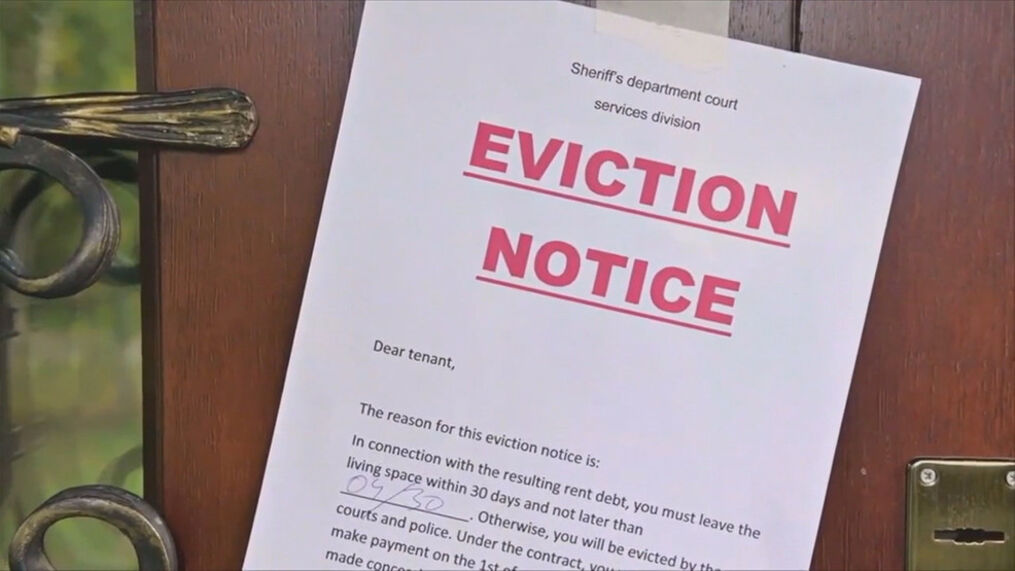As a tenant, it is important to understand your legal rights and obligations regarding your living situation. Even if you do not have a formal lease agreement with your landlord, certain rules and procedures still apply.
In this article, we will explore whether a landlord can remove a tenant without a lease.
Can a landlord kick you out without a lease?
Yes, a landlord can evict a tenant even if there is no written lease agreement. If there is no formal lease but you have an oral month-to-month agreement with the landlord to rent the property, they can still begin eviction proceedings.
Additionally, if there is no lease agreement of any kind, you would generally be considered a month-to-month tenant. In this case, the landlord must still follow proper legal eviction procedures to remove a tenant, which involves providing notice and obtaining a court order. They cannot forcibly remove a tenant or their belongings without going through the legal process.
What is the eviction process for a landlord without a lease?

Even without a written lease, a landlord must still go through the official eviction process to remove a tenant from the property. This involves serving the tenant with a notice informing them of the reasons for termination of their tenancy.
For example, if rent has not been paid, a "Pay Rent or Quit" notice would be issued demanding payment or notice to vacate within a certain number of days. If the tenant does not leave, the landlord can file for eviction in court. The timing and requirements of notices may vary between states but there are required legal procedures in every jurisdiction.
Related: Can A Landlord Charge For Eviction Fees?
How much notice does a landlord need to give to remove a tenant without cause?
If a landlord is terminating a month-to-month tenancy without stated cause, most states require 30 days' written notice to the tenant. This applies regardless of whether there is a formal lease. In some areas, more notice may be required depending on how long the tenant has occupied the rental.
However, 30 days is typically the minimum advance notice landlords must provide tenants to end a periodic tenancy when no reason is given for the termination.
What defenses can a tenant use if facing eviction without a lease?
Even without a signed lease, tenants facing eviction do have some defenses they can raise in housing court. For example, the tenant could argue they are being removed in retaliation for complaining about housing code violations to the city. Another potential defense is that the landlord's stated reason for the eviction, like late rent payments, is untrue or pretextual.
Tenants may also be able to fight an eviction on the basis that the landlord's actions were discriminatory based on protected class status. Strong evidence is needed to support these defenses.
Does a landlord need to return a tenant's security deposit if removing them without a lease?
Yes, applicable security deposit laws regarding deductions and timelines for return still apply even in the absence of a lease. When a landlord removes a tenant without cause by nonrenewal of their periodic month-to-month tenancy, the tenant remains entitled to full return of their deposit, less any permissible deductions, within the time frame required by state law - usually 30 days or less.
If the landlord wrongfully withholds a deposit when removing a tenant, they may be subject to additional financial penalties.
How does a tenant move out if facing eviction without a lease?
Even though tenants may disagree with an eviction, it is best if possible to move out voluntarily before a court orders it. If the tenant leaves by the deadline on an eviction notice from the landlord, such as a "quit" notice demanding vacation by a certain date, it avoids additional late fees and challenge to the eviction in court.
When moving after receiving such notice, tenants should thoroughly clean and vacate the unit, return all property keys/fobs to the landlord, and get written confirmation that they have surrendered possession on time.
Can a landlord be liable for damages if removing a tenant without cause?
Potentially yes, if a landlord removes a tenant from a periodically month-to-month tenancy without cause or using false pretenses, the tenant may be able to file a lawsuit against them.
Damages that courts may hold landlords liable for in unlawful or retaliatory eviction cases could include moving and storage costs, temporary housing costs, past or future lost rental amounts, harm to credit, or emotional distress damages.
However, tenants face an uphill struggle in court if the landlord gave proper advance notice and followed standard procedures.
Conclusion
In summary, while landlords must follow state legal processes like providing notices and obtaining an eviction court order, they can evict tenants without a formal lease agreement if they have been accepting monthly rent payments.





